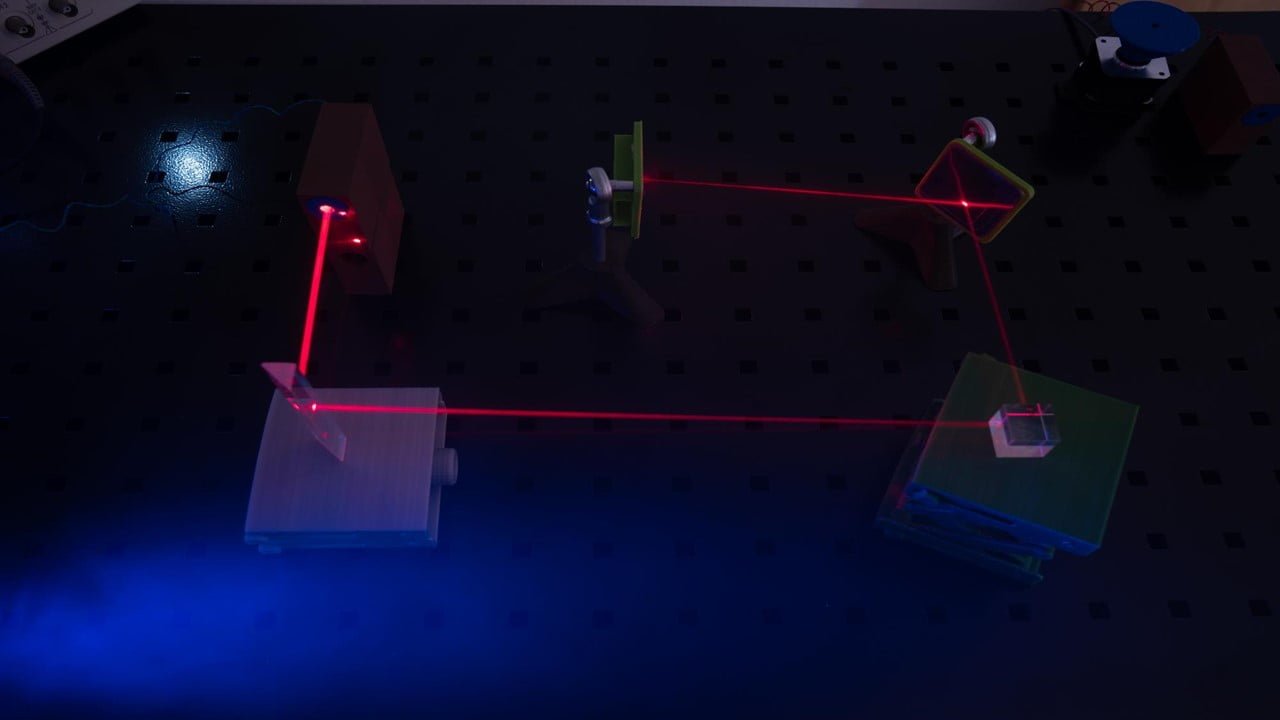
Researchers have developed a groundbreaking method to capture 3D snapshots of laser-wakefield accelerated electron bunches. This advancement is crucial because understanding the complex 3D structure of these bunches is essential for developing advanced applications like compact particle accelerators and brighter X-ray sources. The new technique expertly combines optical transition radiation (OTR) imaging, electro-optic (EO) spatial [..]
Read More
Scientists have devised a novel technique that employs liquid crystals (LCs) to manipulate light’s polarization, an essential characteristic for encryption, data storage, and augmented reality. The conventional method of vectorial holography, which includes adjusting light polarization and intensity, frequently uses metasurfaces or structures designed to regulate light waves. Though these metasurfaces are static, they don’t [..]
Read More
Scientists created an ultra-thin dynamic amplifier for electromagnetic radiation using a parametric metasurface. A parametric metasurface is a thin composite material with a small-scale surface structure that changes periodically over time. The design provides extensive control over freely propagating input radiation, including amplifying up to 10 dB. Amplification is essential for long-distance transmission via air [..]
Read More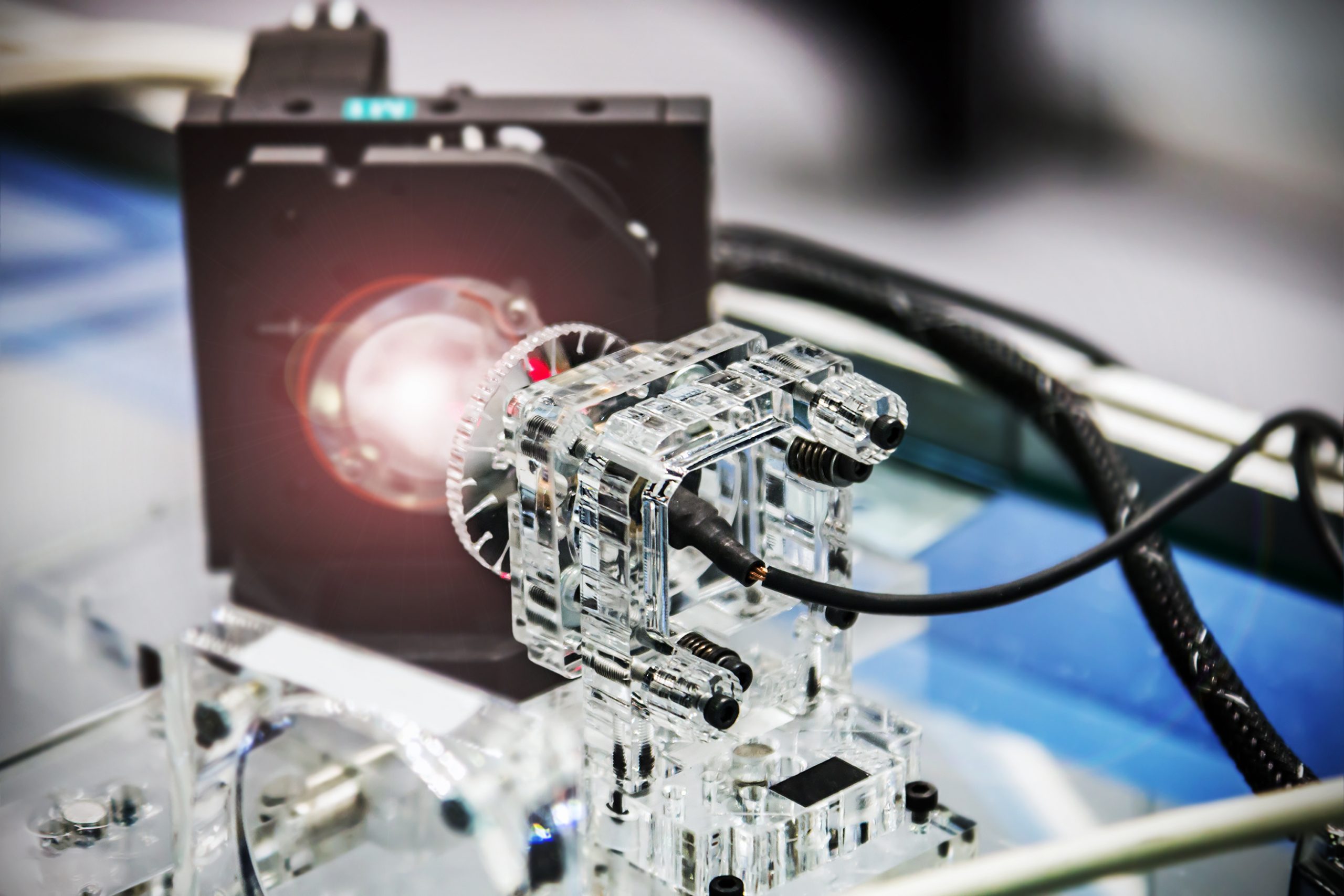
Researchers developed a new technique for laser cooling ytterbium-doped silica by 67 K from ambient temperature. This technique has the potential for solid-state optical refrigeration. The researchers achieved a net cooling of 67 K by pumping a 5 cm long, 1 mm diameter ytterbium-doped silica rod with a 100 W ytterbium fiber amplifier. The experiment [..]
Read More
Spatial omics is a field that allows scientists to study biological samples at a single-cell level. These techniques, which combine genomics, transcriptomics, and proteomics information, enable researchers to see how genes, RNA, and proteins are arranged within a tissue. This field is still new but can potentially revolutionize our understanding of biology and disease. Since [..]
Read More
Ultraviolet spectroscopy is critical for researching electronic transitions in atoms and rovibronic transitions in molecules, which are required for testing fundamental physics, quantum-electrodynamics theory, and precision measurements. Researchers have successfully implemented high-resolution linear-absorption dual-comb spectroscopy in the ultraviolet spectral range, enabling new experiments under low-light conditions and paving the way for novel applications in various [..]
Read More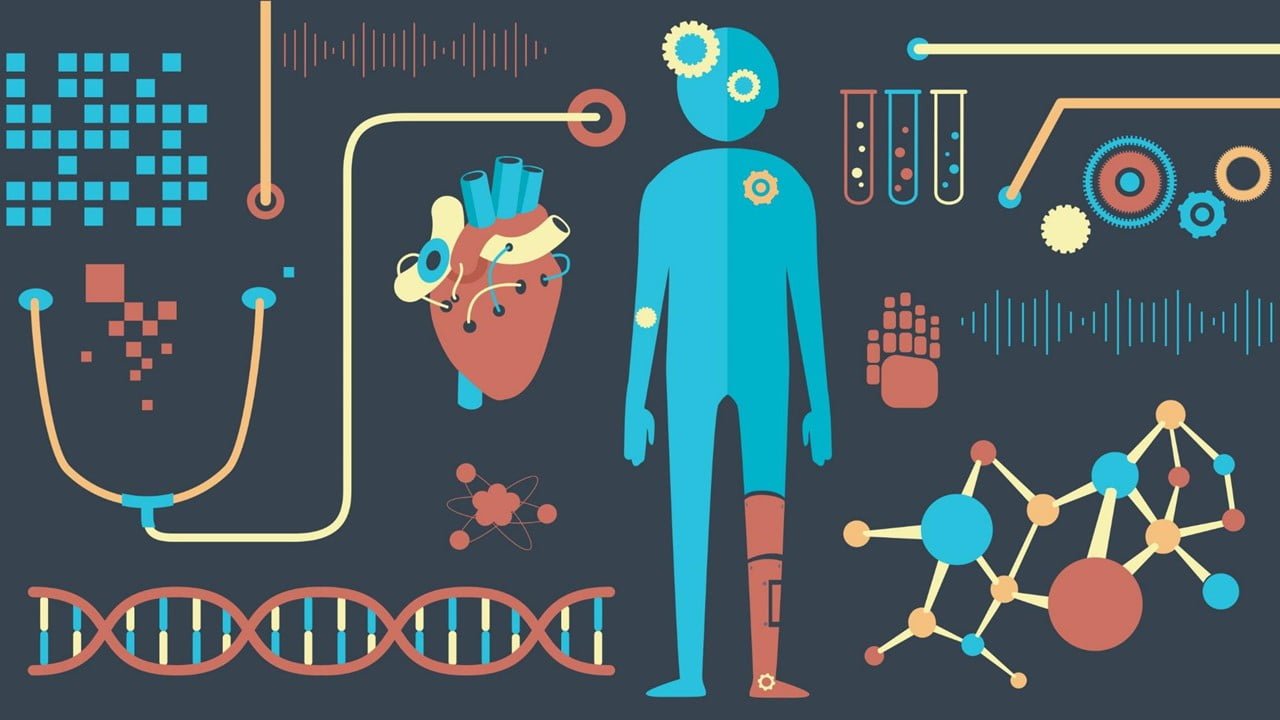
Early cancer diagnosis is critical for improving treatment outcomes and lowering mortality rates. However, prompt diagnosis is common for people who need access to healthcare, such as those with limited income or living in remote areas. Diffuse reflectance spectroscopy (DRS) is a promising method for early cancer diagnosis since it may be conducted rapidly and [..]
Read More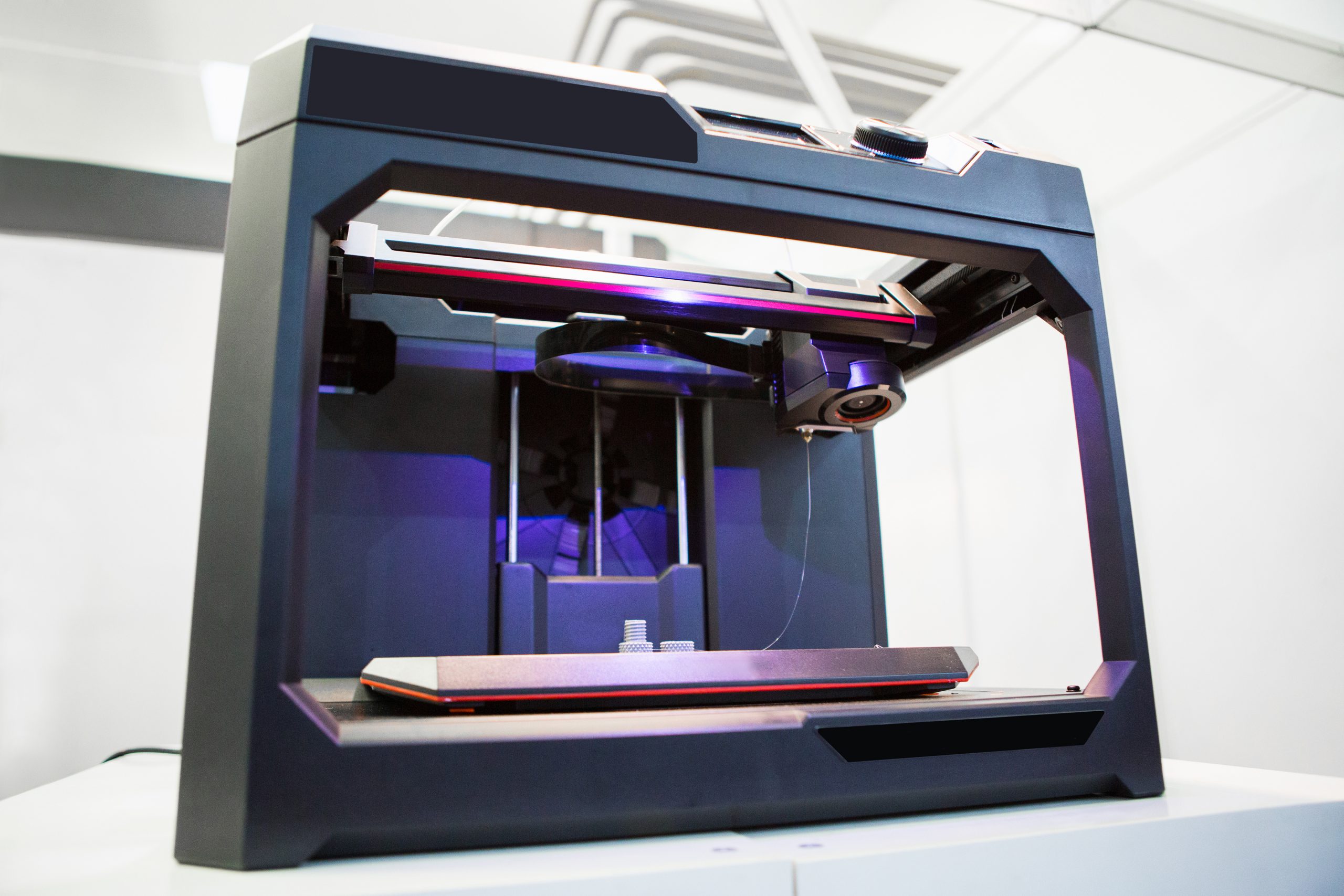
Researchers are developing a new technique for 3D printing ceramics that could revolutionize the field of micro-optics. This technique can create intricate structures that generate and store light, paving the way for new applications like lasers, sensors, and optical communication. The ability to manipulate light at the micro-scale is crucial for many photonic devices. Traditionally, [..]
Read More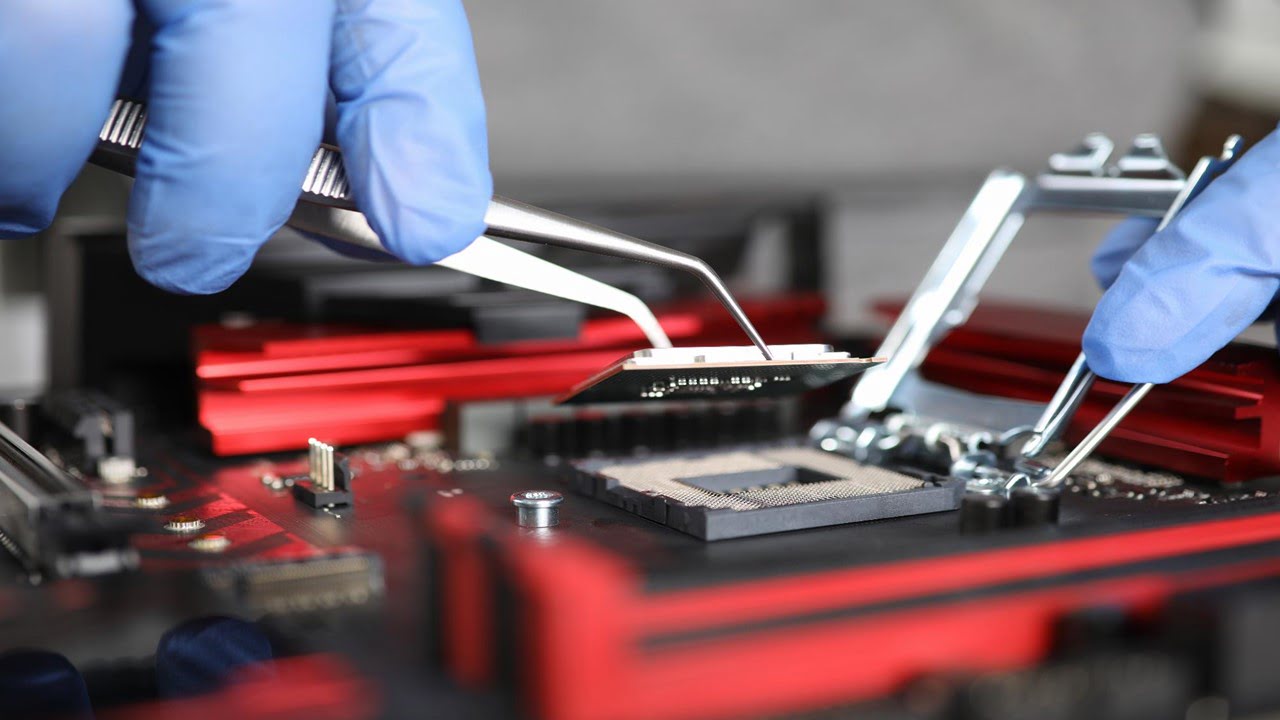
Researchers have developed an organic optoelectronics device that combines organic photovoltaic (OPV) and organic photodetector (OPD) functionalities. Organic photovoltaic and organic photodetector devices efficiently use ambient, unused, and low light to generate electricity and detect light to capture images. OPVs can harvest indoor energy, while OPDs are like cameras using indoor light for imaging. The [..]
Read More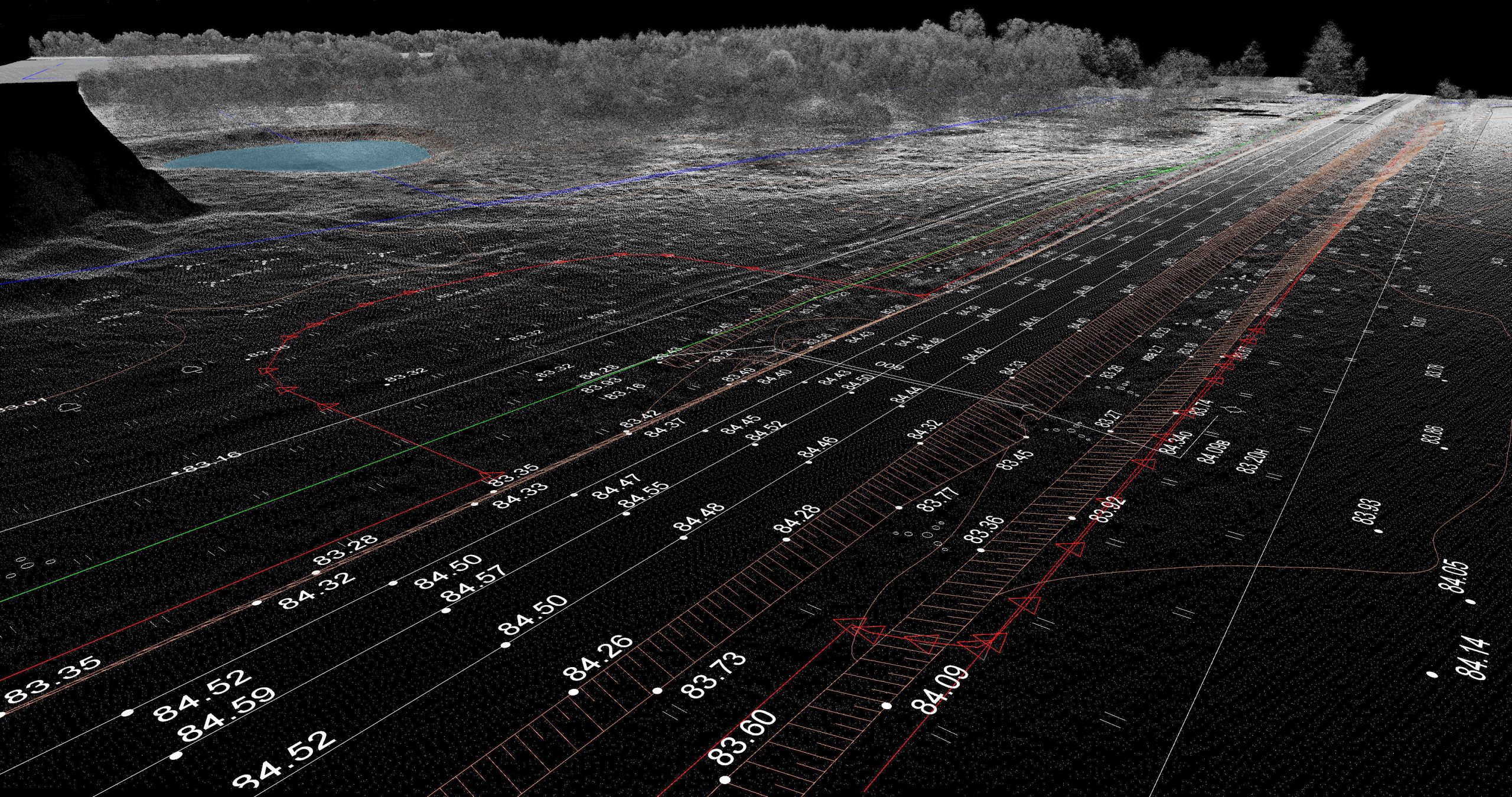
LiDAR, or light detection and ranging, is a crucial technology for self-driving cars, robotics, and other applications that require precise depth sensing. However, conventional LiDAR systems face challenges like bulky designs and limited range. Researchers introduce a promising new approach: antireflective vertical-cavity surface-emitting lasers (Antireflective VCSELs). The Problem with Conventional VCSELs: Traditional LiDAR systems often [..]
Read More
Auger electron spectroscopy (AES) is a powerful technique for analyzing materials’ composition and electronic structure. However, current assumptions about the process often ignore important time-dependent effects, leading to inaccurate and limited results. A new computational approach developed has the potential to unlock AES’s full potential, especially in optics and photonics. One of the key strengths [..]
Read More
A new invention has been created that mimics the image processing power of the human eye. This invention uses a metasurface to transform images before a camera captures them. This allows computers to process images with less power and data. The invention has many potential applications, including target tracking and surveillance. The human eye is [..]
Read More
A physicist is developing a new method for skin cancer screening and diagnosis using Terahertz Imaging System. Terahertz waves are safe and can detect changes in skin hydration, which can indicate cancer. The researcher is building a handheld device that can be used in clinical settings. The researchers discuss the potential of terahertz waves for [..]
Read More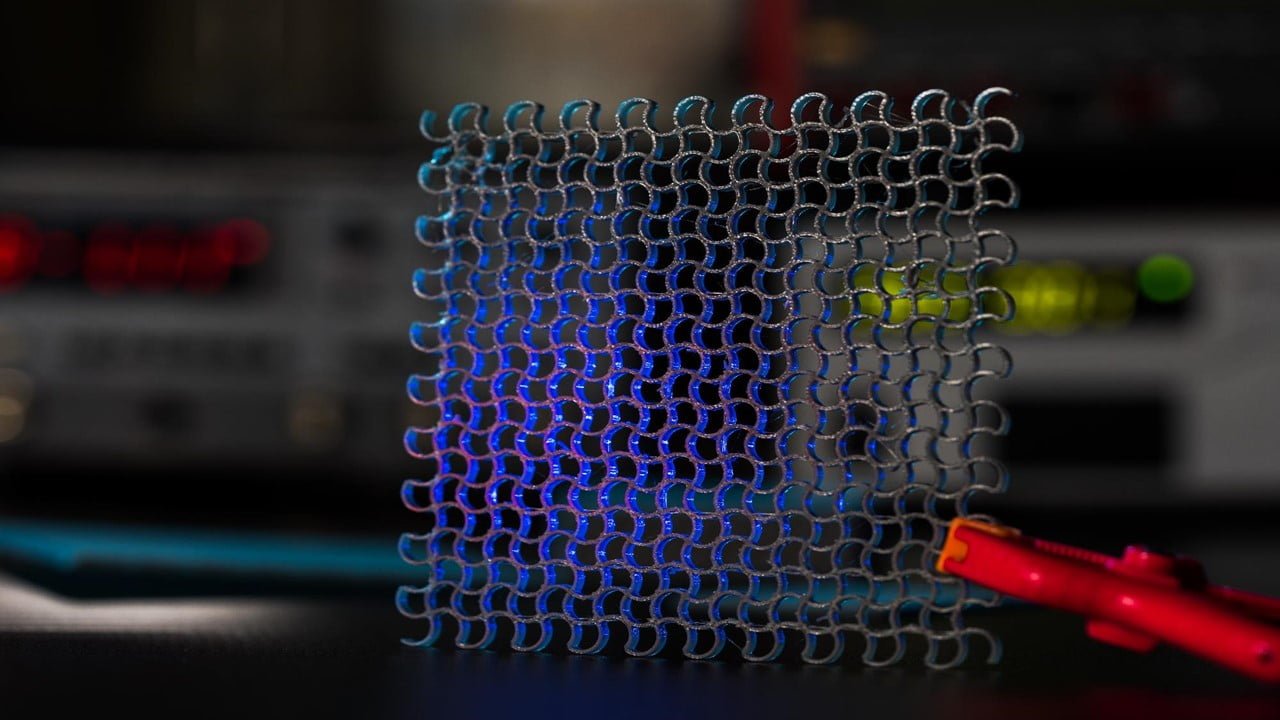
Metasurfaces are a new class of optical components that can potentially revolutionize the field of imaging. They are essentially thin layers of nanostructures that can manipulate light in various ways. In this article, researchers discuss how metasurfaces can be used for infrared edge detection. Edge detection is a fundamental task in image processing to identify [..]
Read More
Researchers discuss a new method for making surface acoustic wave (SAW) microfluidic devices using aerosol jet printing. SAW microfluidic devices are used in lab-on-a-chip applications for tasks such as manipulating fluids and particles. Traditionally, these devices have been made using photolithography, a slow and expensive process. Aerosol jet printing is a much faster and easier [..]
Read More
A recent breakthrough can potentially revolutionize the way photonic integrated circuits are produced. A new laser printer has been developed that could make it possible to create these circuits more cheaply and easily. This could benefit many people, from students and researchers to industry professionals. The new printer writes circuits into a thin film with [..]
Read More
For decades, positron emission tomography (PET) has been a mainstay in brain imaging, offering unparalleled insights into brain function and metabolism. However, conventional PET is limited to imaging a single biomarker at a time, which can be restrictive in understanding the complex interplay of multiple biological processes in the brain. Now, a groundbreaking new PET [..]
Read More
Researchers have developed a new method for 3D printing glass using light instead of high temperatures. The new technique, which uses deep ultraviolet (DUV) light, is faster and more energy-efficient than traditional methods. The resulting glass microstructures are transparent and have a smooth surface, making them suitable for various applications in optics, microfluidics, and medical [..]
Read More
Scientists have made a significant breakthrough in developing broadband photodetectors by successfully doping molybdenum disulfide (MoS2) with vanadium (V). This innovative technique paves the way for next-generation optoelectronic devices with enhanced light sensitivity across a wider range of wavelengths. The ability to manipulate the properties of materials through doping is crucial in tailoring them for [..]
Read More
The quest for building robust and scalable quantum networks has taken a major leap forward with developing novel nanometric optomechanical cavities. These cutting-edge resonators, mere billionths of a meter in size, hold immense promise for revolutionizing quantum communication and computation. These cavities synergistically couple light and mechanical vibrations. This exquisite interplay enables the seamless transfer [..]
Read More